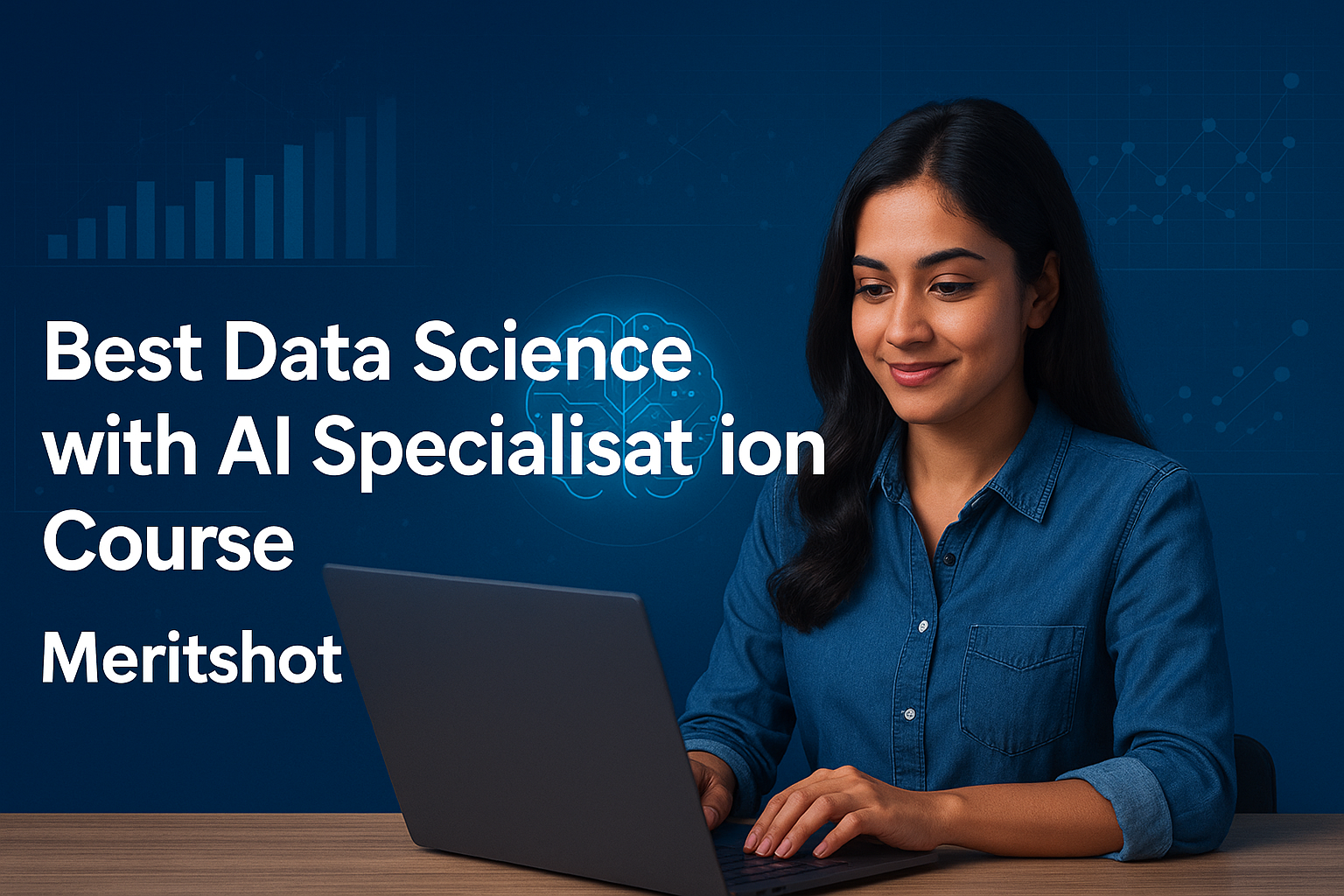Blog

Data Science Project Ideas for Healthcare Domain - Meritshot
Data Science Project Ideas for Healthcare Domain
January 3, 2024
Unlocking the Power of Data Science in Healthcare: Transforming Patient Outcomes and Operational Efficiencies
.avif)

Introduction:
The healthcare industry stands at the forefront of generating massive volumes of data every day. This wealth of information holds tremendous potential for leveraging data science techniques to drive transformative changes in patient care, operational efficiencies, and cost reduction. In this comprehensive blog post, we will explore a diverse range of data science project ideas tailored specifically for the healthcare domain. By implementing these innovative projects, healthcare organizations can harness the power of data to revolutionize patient outcomes and enhance the overall efficiency of the industry.
Predictive Modeling for Disease Diagnosis:
The ability to accurately and timely diagnose diseases is crucial for improving patient outcomes. By developing predictive models that utilize various data sources, including symptoms, medical history, and genetic markers, healthcare providers can enhance diagnostic accuracy. Leveraging machine learning algorithms and techniques such as decision trees or deep learning, these models can identify patterns and make accurate predictions, enabling physicians to make more informed decisions and optimize treatment plans.

Drug Efficacy Analysis:
Analyzing clinical trial data is essential for understanding the effectiveness and safety profiles of drugs for specific patient populations. By leveraging data science techniques, such as statistical analysis and machine learning, pharmaceutical companies can evaluate drug efficacy, identify potential side effects, and tailor treatments to different patient groups. These insights enable the development of more targeted and effective medications, ultimately improving patient outcomes.
Patient Risk Prediction:
Developing models that predict patient risk for specific diseases holds immense potential for preventive care and personalized interventions. By leveraging advanced analytics and machine learning algorithms, healthcare providers can analyze a multitude of patient data, including demographics, genetic information, lifestyle factors, and medical history. These models can identify individuals at high risk for developing certain conditions, allowing healthcare professionals to implement targeted interventions, early detection, and preventive measures, thus improving patient health and reducing healthcare costs.
Electronic Health Records (EHR) Analysis:
The digitization of patient records has led to an exponential increase in available data. By applying data science techniques to EHR data, healthcare providers can unlock valuable insights for personalized treatment plans, identify patterns in patient health outcomes, and optimize care delivery. Utilizing natural language processing (NLP), data mining, and statistical analysis, EHR analysis can improve diagnoses, enable early detection of diseases, and enhance patient monitoring and care coordination.
Clinical Trial Optimization:
Clinical trials play a pivotal role in testing new treatments and therapies. Data science can optimize the design and execution of clinical trials, leading to cost reductions, improved patient outcomes, and faster time-to-market for innovative therapies. By leveraging historical trial data, predictive modeling, and optimization algorithms, researchers can optimize sample sizes, trial durations, patient recruitment strategies, and treatment allocation, ensuring efficient trial execution and accurate evaluation of treatment efficacy.
Patient Readmission Prediction:
Reducing patient readmissions is a key objective for healthcare providers to improve patient care and lower costs. By developing predictive models that consider patient demographics, medical history, and other relevant factors, healthcare organizations can identify patients at high risk of readmission. These models can enable proactive interventions, such as personalised care plans, medication adherence support, or post-discharge monitoring, to prevent unnecessary readmissions and ensure continuity of care.
Medical Image Analysis:
Medical imaging, such as X-rays, MRIs, and CT scans, produces vast amounts of visual data. By leveraging computer vision, deep learning, and image analysis techniques, data scientists can develop models that automatically detect abnormalities, assist in diagnosing diseases, and support radiologists in their decision-making processes. Accurate and efficient medical image analysis can expedite diagnoses, reduce human error, and improve patient outcomes.
Patient Sentiment Analysis:
Patient satisfaction and experience play a crucial role in healthcare delivery. By analysing patient feedback, social media data, and online reviews, healthcare providers can gain insights into patient sentiments, preferences, and concerns. Applying sentiment analysis and natural language processing techniques, data scientists can uncover valuable information to drive improvements in patient experience, optimise service delivery, and tailor healthcare communication strategies.
Medical Chatbots:
The integration of artificial intelligence and natural language processing has paved the way for medical chatbots. These intelligent virtual assistants can interact with patients, providing timely medical advice, answering common health-related questions, and offering support. Medical chatbots enhance accessibility to healthcare services, especially in remote areas, and alleviate the burden on healthcare professionals by handling routine inquiries, enabling them to focus on more complex cases.
Healthcare Resource Optimization:
Effective allocation of healthcare resources, such as hospital beds, staff, and equipment, is crucial for delivering efficient and quality care. By applying optimization techniques, predictive analytics, and demand forecasting, healthcare organizations can optimize resource allocation, reduce wait times, streamline operations, and improve patient flow. These data-driven approaches ensure that resources are utilized optimally, resulting in cost savings, improved patient access, and enhanced overall healthcare delivery.
Disease Outbreak Prediction:
Timely identification and prevention of disease outbreaks are critical for public health. By leveraging data from various sources, including environmental data, social media, and historical disease records, data scientists can develop models that predict and detect disease outbreaks. These models enable healthcare providers to take proactive measures, such as implementing targeted vaccination campaigns, resource mobilization, and public health interventions, ultimately mitigating the impact of outbreaks and protecting public health.
Health Insurance Fraud Detection:
Fraudulent activities in health insurance claims can significantly impact costs and the overall efficiency of the healthcare system. Data science techniques, including anomaly detection, machine learning, and network analysis, can be applied to insurance claims data to identify patterns indicative of fraud. By developing robust fraud detection models, insurance providers can prevent fraudulent claims, minimize financial losses, and allocate resources more effectively to legitimate healthcare needs.
Chronic Disease Management:
Chronic diseases pose significant challenges to healthcare systems. By developing models that predict disease progression, treatment response, and patient outcomes, healthcare providers can personalize treatment plans, monitor patients remotely, and optimize disease management strategies. Data science approaches, including predictive modeling, risk stratification, and decision support systems, empower healthcare professionals to deliver targeted interventions, enhance patient engagement, and improve long-term health outcomes.
Medical Equipment Maintenance:
Preventive maintenance of medical equipment is crucial for ensuring uninterrupted healthcare services. By leveraging machine learning algorithms and historical maintenance data, data scientists can develop predictive models that anticipate equipment failures and maintenance needs. These models enable healthcare organizations to schedule maintenance activities proactively, reduce downtime, optimize resource utilization, and improve the overall operational efficiency of healthcare facilities.
Medical Chatbots for Mental Health:
Mental health plays a vital role in overall well-being, and accessibility to mental health services is a growing concern. Medical chatbots specialized in mental health can provide support, offer coping mechanisms, and connect individuals with appropriate resources. These chatbots utilize natural language processing, sentiment analysis, and cognitive-behavioral therapy techniques, providing accessible and immediate mental health assistance to those in need.
Conclusion:
The healthcare industry possesses immense potential for leveraging data science to drive transformative changes. The discussed project ideas highlight the breadth of opportunities available for data scientists and healthcare professionals to collaborate and harness the power of data. By embracing these projects, healthcare organizations can unlock invaluable insights, improve patient outcomes, enhance operational efficiencies, and create a more patient-centered and data-driven healthcare system. Together, let us embark on this journey of data-driven healthcare innovation for a healthier and more prosperous future.


.png)
.png)





















